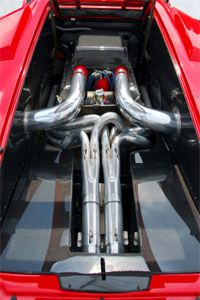Changing your car's oil at regular intervals isn't just a good idea -- it's a vital part of keeping your car's engine running properly. The purpose of engine oil is to keep the internal parts of your car's engine lubricated and cool. It keeps the moving parts from grinding against each other causing wear and damage.
Without frequent oil changes, dirt and sludge can build up in the engine, and old, dirty oil won't lubricate the moving parts as well as new, fresh oil will. Dirty oil leads to serious damage, and if things get bad enough, there may be an engine replacement in your future.
Advertisement
Fortunately, changing your oil is a simple and relatively inexpensive procedure. Depending on what kind of vehicle you have, you can get your oil changed at a lube shop or dealership every 3,000 to 5,000 miles (4,828 to 8,047 kilometers). It's not hard to change the oil yourself, either.
But what are you supposed to say when you get to the counter at the lube shop and the mechanic asks you, "What kind of oil do you want?" Of course, you'll want to use the weight of oil recommended in your owner's manual, but what brand should you use? Should you choose mineral oil, a blended oil or a synthetic oil? Is there really any difference between a quality motor oil and a less expensive brand?
In this article, we'll look at why it's important to invest in good oil, and how high-quality motor oil will keep your engine running. Up next, let's talk about motor oil ratings.





